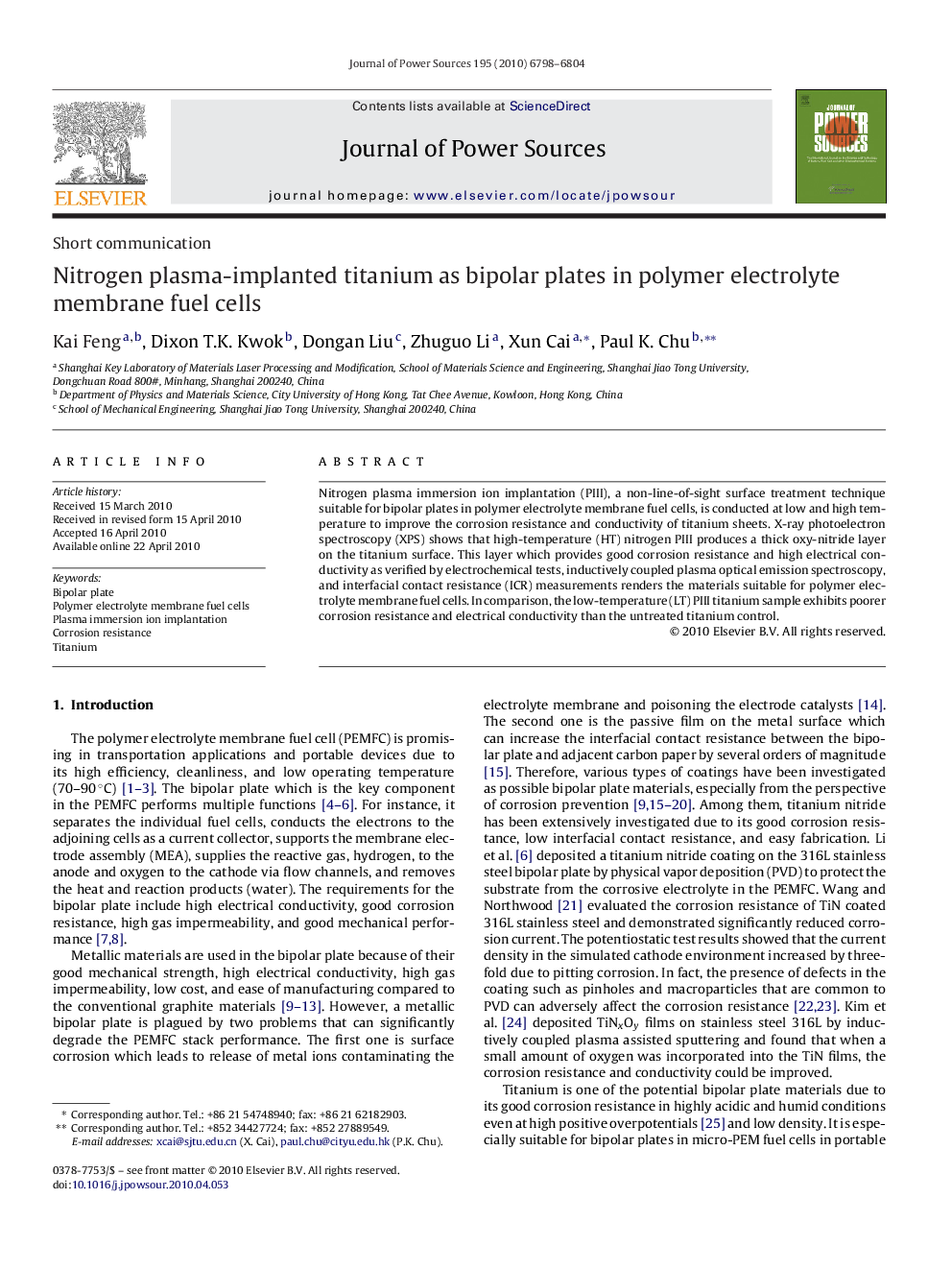| Article ID | Journal | Published Year | Pages | File Type |
|---|---|---|---|---|
| 1289408 | Journal of Power Sources | 2010 | 7 Pages |
Abstract
Nitrogen plasma immersion ion implantation (PIII), a non-line-of-sight surface treatment technique suitable for bipolar plates in polymer electrolyte membrane fuel cells, is conducted at low and high temperature to improve the corrosion resistance and conductivity of titanium sheets. X-ray photoelectron spectroscopy (XPS) shows that high-temperature (HT) nitrogen PIII produces a thick oxy-nitride layer on the titanium surface. This layer which provides good corrosion resistance and high electrical conductivity as verified by electrochemical tests, inductively coupled plasma optical emission spectroscopy, and interfacial contact resistance (ICR) measurements renders the materials suitable for polymer electrolyte membrane fuel cells. In comparison, the low-temperature (LT) PIII titanium sample exhibits poorer corrosion resistance and electrical conductivity than the untreated titanium control.
Keywords
Related Topics
Physical Sciences and Engineering
Chemistry
Electrochemistry
Authors
Kai Feng, Dixon T.K. Kwok, Dongan Liu, Zhuguo Li, Xun Cai, Paul K. Chu,
